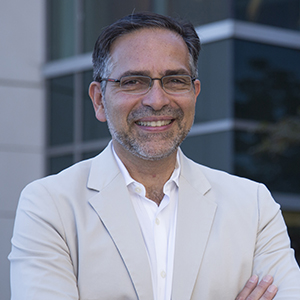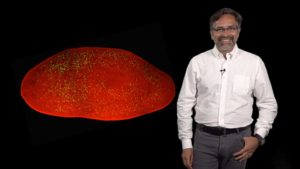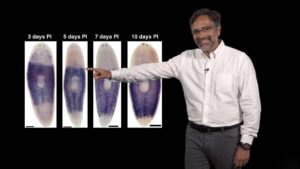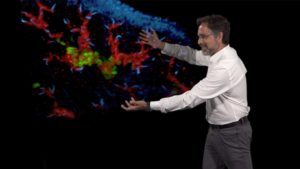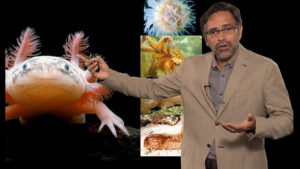Dr. Alejandro Sánchez Alvarado is an Investigator at the Stowers Institute for Medical Research in Kansas City, MO and the Howard Hughes Medical Institute. He is also co-director of the summer course on embryology at the Marine Biological Laboratory in Woods Hole, MA.
Sánchez Alvarado moved from Venezuela and received his Bachelor’s degree in Molecular Biology and Chemistry from Vanderbilt University and his Ph.D. in Pharmacology and Cell Biophysics from the University of Cincinnati School of Medicine. In 1994, he joined the laboratory of Dr. Donald D. Brown at the Carnegie Institution of Washington, Department of Embryology as a postdoctoral fellow and in 1995 was appointed Staff Associate. It was during this period that Sánchez Alvarado began to explore systems in which to molecularly dissect the problem of regeneration. From 2002-2011, Sánchez Alvarado was a faculty member in the Department of Neurobiology and Anatomy at the University of Utah School of Medicine. Today his lab uses planarians to explore the processes that govern regeneration. He is interested in the molecular mechanisms by which this organism keeps the integrity of its different tissues during the process of regeneration and growth.
Sánchez Alvarado was the recipient of a Merit Award from the National Institutes of Health and the E.E. Just Award from the American Society for Cell Biology and he was a Kavli Fellow of the National Science Foundation. Sánchez Alvarado was elected to the American Academy of Arts and Sciences in 2015.
